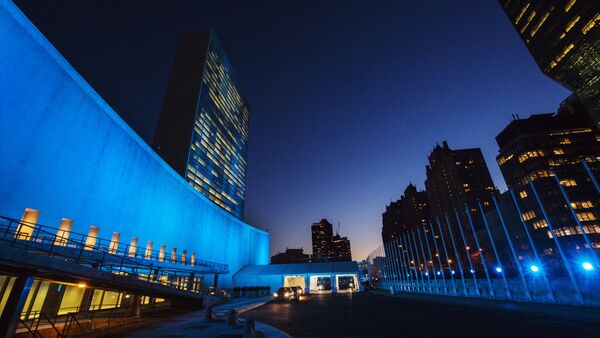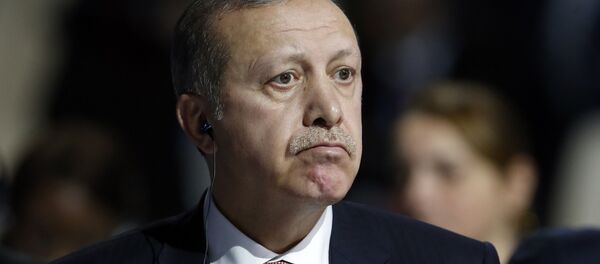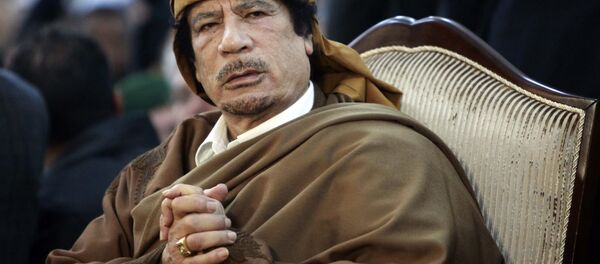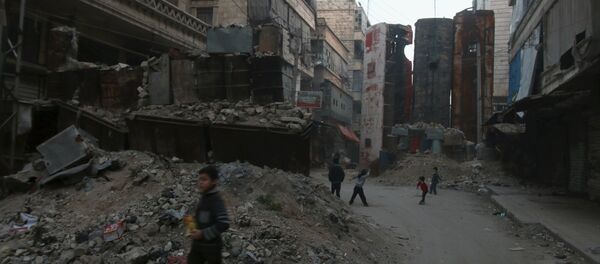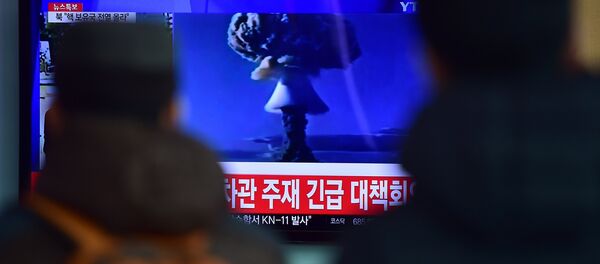On Wednesday, in a televised address during his East African tour, Erdogan reiterated an argument he has floated before, and said that it was a travesty that there are no Muslim or African countries among the permanent members of the United Nations Security Council.
"The world is more than five permanent UN Security Council members who decide the fate of humanity," Erdogan said. "No African, no Muslim countries are among them. This disparity between the continents runs counter to the principles of justice," he added.
At present, the Security Council consists of five permanent members with veto power (Russia, China, the United States, the United Kingdom, and France), as well as ten non-permanent members, elected for two year terms by the General Assembly.
This is not the first time Erdogan has made such proposals. The Turkish leader leveled similar criticisms against the Security Council at the Organization of Islamic Cooperation summit in Istanbul in April, and at the World Humanitarian Summit, also held last month in Istanbul.
At the latter summit, Erdogan explained that the new format would be needed "to anticipate crises, to intervene into conflicts in time and to prevent them, and get rid of those who are causing the conflicts."
"Russia's position," the paper recalled, "is that the Security Council can indeed expand representation to countries in Asia, Africa and Latin America, but that any scenario must retain the right of veto." The latter was among the conditions insisted on by Moscow during the formation of the UN after the Second World War.
At the same time, Svobodnaya Pressa suggested, such reforms "would be unlikely to satisfy the Turkish leader…Judging by his earlier statements, it's easy to see exactly which permanent member of the Security Council he finds most problematic."
Last year, the paper recalled, Erdogan protested that "the red carpet has been rolled out in Moscow" for President Bashar Assad, who the Turkish president has accused of 'spawning state terror'. "Is such a thing possible? What kind of world is this? What kind of UN Security Council is this?" Erdogan complained.
For their part, Erdogan's newfound allies in Kiev have been prone to making similar statements, although their demands are usually limited to excluding Russia from the body, not its wholesale reform.
Asked by Svobodnaya Pressa whether Erdogan's proposals could become a reality, especially given the deterioration of relations between Russia and the Western powers, Eurasian Communication Center director Alexei Pilko was blunt: there's no chance.
As for proposals to expand the body, "that's a separate issue," Pilko explained. "It might include countries like Brazil, India, Japan and Germany. Such discussions have been held for quite some time. The present model is not without its drawbacks. But it serves to prevent major conflicts between the great powers, and this is important."
At the same time, the analyst suggested, the Turkish government "can talk all it wants about the Security Council's lack of representation for Muslim countries. The bottom line is that the body is not formed on a religious basis, but based on the most powerful countries in the world. These are the United States, Russia, the United Kingdom, France and China. These are the countries that have a decisive influence on the international agenda. Turkey does not belong to this group."
Ultimately, Pilko noted that "the reform of the UN is necessary, but not drastically so. The expansion of the list of permanent members should be discussed; the time for this has come. But even in its present form the Security Council is able to perform its main function – to ensure global security."
In any case, so far as any possible daydreaming in Ankara or Kiev about kicking Russia out of the body, the expert emphasized that this is simply an impossibility.
"Russia is the legal successor of the Soviet Union, one of the founders of the UN. We cannot be excluded from the Security Council in the same way that the United States, Great Britain, France or China cannot. How would this even be done? By abolishing the UN altogether? No one would ever agree to this. By disbanding the Security Council? All its members, including Russia, have the right of veto. I'm convinced that even the other permanent members of the Security Council, the United States included, would not support such an initiative. This is a model that works, and breaking it would be very dangerous."
"No one would agree to getting rid of the permanent members of the Security Council…without them, discussion in the UN will become so unmanageable and unpredictable that it would cease to serve anyone's interests. Its activities would become a permanent showdown, and would deprive the UN from the last remnants of structure, which in turn would signal the end of the organization altogether. Even today, there are many complaints to be made against the UN, but the abolition of permanent Security Council membership would not lead to anything good."
Moreover, Bruter said, "with regard to Erdogan's statement that the Security Council doesn't have any Muslim countries: first of all, Turkey itself, according to its constitution, is not a Muslim country, but a secular state. Secondly, the United States too is not a Christian country – the country does not have a state religion; the same is true of Russia. For the head of a country that has always been considered secular to talk about Muslim countries in the Security Council is bad form."
"Russia," the analyst pointed out, "never talks about itself as an Orthodox country in international relations, and does not claim to represent all Orthodox countries in the Security Council. Such a thing would look a bit strange. The same way Erdogan's comments look strange."
The UN, the expert noted, is not an institution designed to impose one country's will on others. "The UN is a mediator, not an instrument of coercion. The organization can only be an instrument of coercion when most countries have the same position. For example, if the UN imposes sanctions against North Korea, it's obvious that the whole world will share the same position. But if there are significant differences, the UN cannot assist; it's not designed for this purpose."
"And this has always been the case. The wars in the Balkans in the 1990s occurred in spite of the existence of the UN. This organization can record disagreements and introduce mechanisms to prevent the expansion of military operations, and subsequently neutralize them. But it cannot eliminate the initial contradictions leading to conflict. These contradictions accumulate for decades, if not centuries. Introducing a new mechanism to try and prevent them is pointless."
Ultimately, Bruder recalled, when it comes to conflicts between nations and the competition for geopolitical influence, membership in the Security Council is not enough. In today's world, "conducting policy divergent from [the interests] of the United States is possible for very few countries. We have seen how this has played out in Brazil, Argentina, and especially in Venezuela. Such a policy requires serious resources and political will."
"Today, Russia is trying to pursue a relatively independent foreign policy, and we can see that Washington reacts to this very negatively. But the UN has nothing to do with it. The body is a mechanism limited to resolving issues which the international community can agree upon."
"What can be done with the US? We cannot do away with their desire and capabilities to try and control the whole world. We cannot spend trillions of dollars on defense programs…The UN has nothing to do with Russian-American, or moreover, Russian-Turkish conflicts. One cannot demand from this organization the resolution of fundamental differences between countries. And no reforms will change that."
